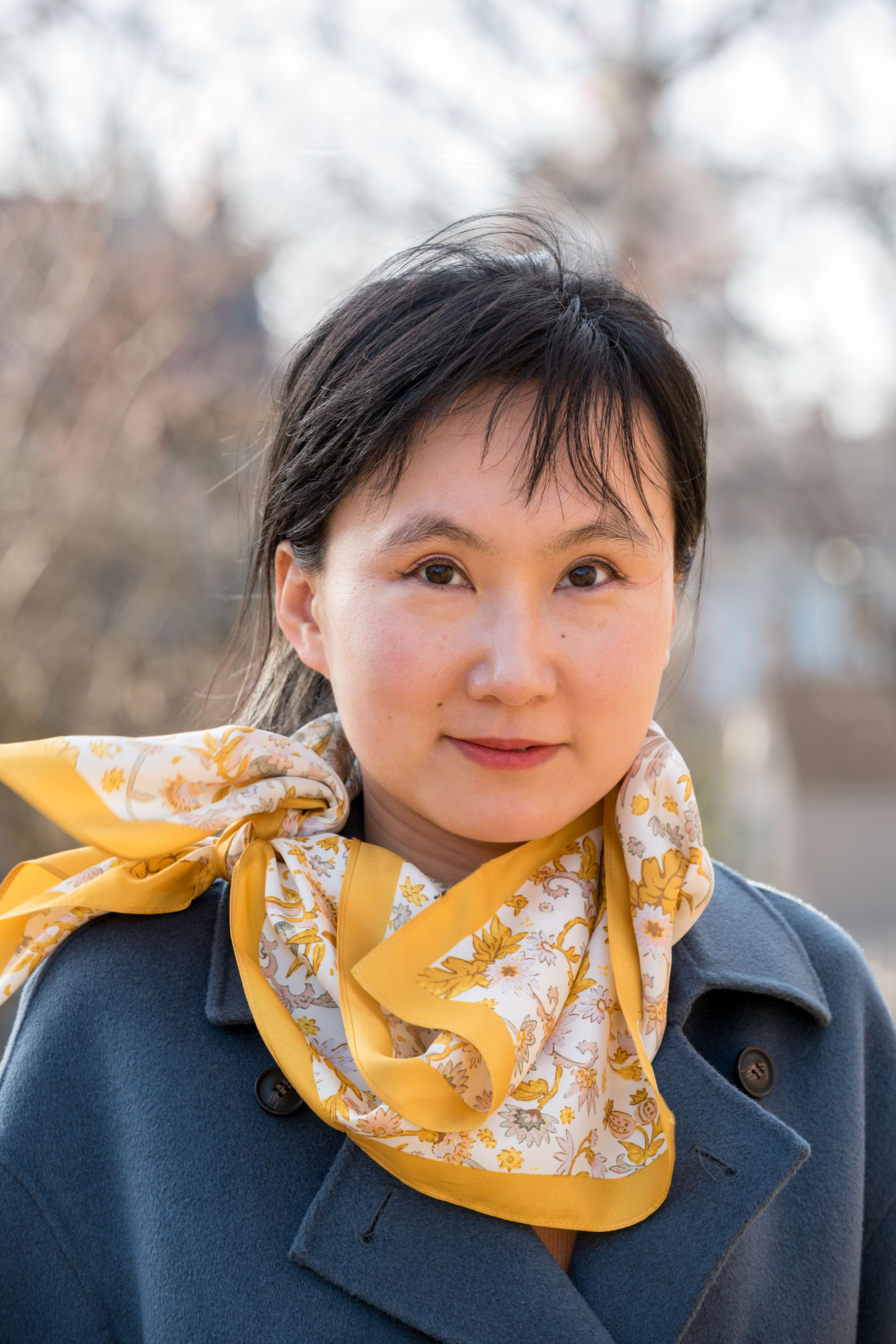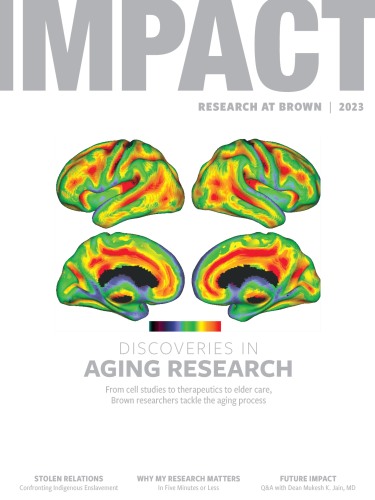Composing as Cultural Research
Wang Lu connects sounds, surroundings, and listeners through musical composition.
Wang Lu connects sounds, surroundings, and listeners through musical composition.
"COMPOSING MUSIC PROVIDES THE FREEDOM to say what you want to say using music in an abstract way,” said Wang Lu, associate professor of music at Brown. “It is about having the courage to build community and accept one another’s uniqueness.”
 Wang Lu’s music showcases the beauty of environmentalism and highlights social justice issues, a passion that began in China. “I grew up in Xi’an, the ancient capital of China, in the 1990s, surrounded by construction noise, bulldozed homes, street vendors, traditional opera singers in the park, propaganda and pop music on radios, TVs, bicycles, and motorcycles—all sounds that found their way into the music I create.”
Wang Lu’s music showcases the beauty of environmentalism and highlights social justice issues, a passion that began in China. “I grew up in Xi’an, the ancient capital of China, in the 1990s, surrounded by construction noise, bulldozed homes, street vendors, traditional opera singers in the park, propaganda and pop music on radios, TVs, bicycles, and motorcycles—all sounds that found their way into the music I create.”
Wang Lu’s practice of recreating the pulse of daily life through her art began during her studies at the Central Conservatory of Music in Beijing. There she defined her own way of using the variety of techniques she learned during her foundational training, which allowed for “a way of liberating and finding your unique voice down the road,” she said. While attending Columbia University in New York for a doctoral degree in composition, she immersed herself in her surroundings and studied different music and cultures within their settings. Fusing it all together, her compositions are an eclectic mix of recorded and electronically processed environmental sounds and instruments from solo and chamber ensembles to the full orchestra, artfully blended to harmoniously express stories in an emotional, whimsical, and entrancing fashion.
Wang Lu’s periods of residence in international metropolises such as New York and Rome have produced a profusion of research comprising her firsthand experiences as a conscious observer of sound, movement, and space. “The sonic insights I have developed become my own musical vocabulary,” she said. As part of her artistry, she analyzes the physics of sound: how a chord or sound is constructed, what are its layers of frequencies, and how to manipulate sounds to construct new acoustic space. She transcribes language intonations and uses linguistic contours of dialect to inspire new tonalities.
In composing Urban Inventory (2015), Wang Lu offers a glimpse of life in the rapidly transforming modern China of her youth. As she describes in the program notes, the track “City Park” incorporates “scenes of leisurely and nonchalant chatting, strolling, dancing, tai-chi, dog- and kid-walking. Sounds of broken instruments mix with songs of praise to Western and Eastern gods and fantasies of early propagandist dance troupe goddesses. Other sounds meld the beguiling voice of a 1990s pop icon, a peasant rap sensation who briefly went viral, and the monotone voice of a rural poet.”
“It is the music alone that provides the freedom to say what you want to say by incorporating the sounds in an abstract way,” she said. “You start to develop an emotional connection with the sounds you hear around you.”
“ The sonic insights I have developed become my own musical vocabulary. ”
In contrast, Surge (2022), commissioned by the Toulmin Foundation and the League of American Orchestras for the New York Philharmonic for a January 2023 premiere, is a more abstract response to emerging environmental and political challenges. Her program notes for the premiere performance expand on the title concept: “There is an overwhelming sense of unforeseen surges that permeate our lives. Yet there is also an irresistible sense of collective urgency to build on more complex perspectives that would tolerate bold and unique innovations. Surge frequently features full orchestral tutti moments, transforming them into colossal textures and mixing tone colors while amplifying a single theme throughout.”
“Each piece of mine arises from an idea that is not only about music, so it begins almost like a cultural research project,” she said. This is a model Wang Lu also applies in the classroom, where she teaches Music in China since 1900, an introductory course for undergrads, and Issues of Time and Space in New Music, a graduate seminar. Students analyze scores and historical recordings and learn about cultural and political contexts.
Wang Lu said her goal is to live and teach her passion with the hope of encouraging others to focus on accepting one another and their cultural differences. “Being an artist is about deeply dealing with oneself, allowing yourself space, and finding pleasure in exploring the passion of creation,” she said. “If you can live honestly with yourself as a composer, then you have more empathy towards others’ experiences. I hope my music connects listeners and brings us into new cultural and artistic perspectives.”
Wang Lu is a recipient of the 2014 Guggenheim Award, the 2019 Berlin Prize in Music Composition, and the 2021 Wladimir and Rhoda Lakond Award from the American Academy of Arts and Letters.
